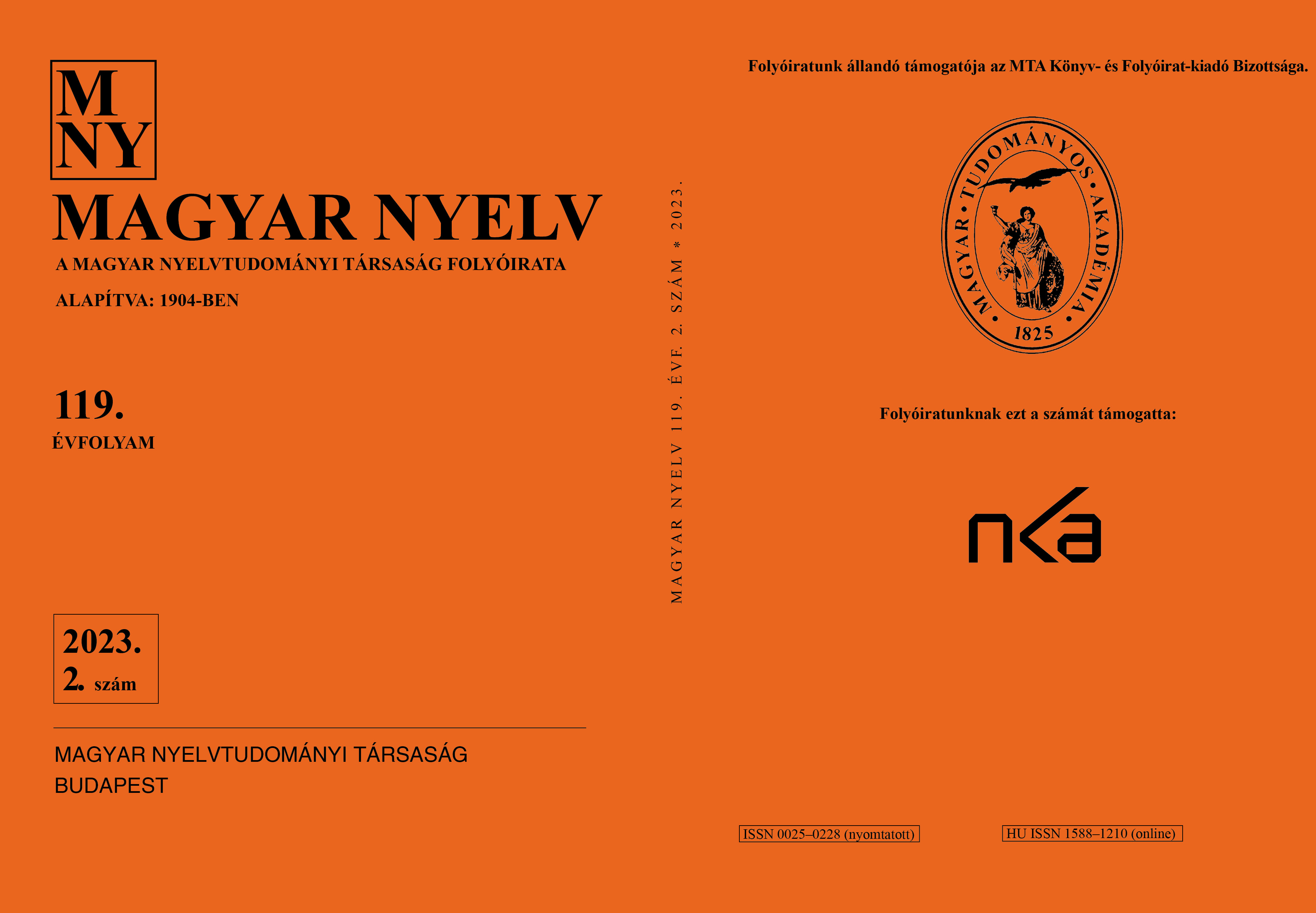On the historical linguistic analysis of the forged charters of St. Stephen
Part 2
DOI:
https://doi.org/10.18349/MagyarNyelv.2023.2.171Keywords:
charters with an uncertain chronological status, charters forged back to the beginning of the 11th century, remnants, toponyms, special methodological principlesAbstract
Only four authentic charters have survived in their original form from the 11th century, an era marking the beginning of Hungarian literacy. Due to the low number of authentic sources from this early period, the language material of those of uncertain authenticity (that have not survived in their original form and that are not authentic) should also be studied. Charters with an uncertain status cannot be analysed with the same methodological principles as the authentic and original charters. This paper discusses those special methodological principles that may facilitate the examination of the charters with an uncertain status and, based on these, draws conclusions in connection with the historical linguistic source value of the four forged charters (the charters of Bakonybél, Pécsvárad and two of Zalavár) of St. Stephen.
Downloads
Published
Issue
Section
License
Copyright (c) 2023 Melinda Szőke

This work is licensed under a Creative Commons Attribution-NonCommercial-NoDerivatives 4.0 International License.
Magyar Nyelv is a Diamond Open Access periodical. Documents can be freely downloaded and duplicated in an electronic format, and can be used unchanged and with due reference to the original source. Such use must not serve commercial purposes. In the case of any form of dissemination and use, Hungarian Copyright Act LXXVI/1999 and related laws are to be observed. The electronic version of the journal is subject to the regulations of CC BY-NC-ND (Creative Commons – Attribution-NonCommercial-NoDerivatives).
The journal permits its authors, at no cost and without any temporal limitation, to make pre-print copies of their manuscripts publicly available via email or in their own homepage or that of their institution, or in either closed or free-for-all repositories of their institutions/universities, or other non-profit websites, in the form accepted by the journal editor for publication and even containing amendments on the basis of reviewers’ comments. When the authors publicize their papers in this manner, they have to warn their readers that the manuscript at hand is not the final published version of the work. Once the paper has been published in a printed or online form, the authors are allowed (and advised) to use that (post-print) version for the above purposes. In that case, they have to indicate the exact location and other data of the journal publication. The authors retain the copyright of their papers; however, in the case of an occasional secondary publication, the bibliographical data of the first publication have to be included.



